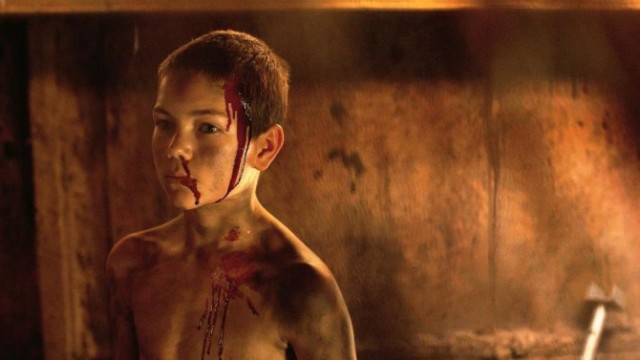The plot for Cub couldn’t be more basic: A troop of boy scouts go into the woods; horror ensues. The movie could go anywhere from there – campy horror, actual horror, comedy – and a smart movie would choose its direction early and stick with it. Unfortunately, Cub can’t decide between camp, slasher, and psychological thriller, and ends up being a narrow miss.
12-year-old Sam is an outcast within his scouting troop when they head off to the woods for a retreat. Even one of his troop leaders, Peter, doesn’t like him. Peter, a sadistic teenager, enjoys tormenting the troops in a borderline cruel fashion, and saves extra special digs for Sam. As a special treat, they reveal that the forest is the stomping grounds for a legendary wolfboy Kai. Raised by wolves, Kai creates mischief and kills people for his pleasure. What was legend becomes possibly real when Sam meets Kai face-to-face and finds his treetop home.
The ensuing movie is generally run of the mill, though it does periodically find its way into some sadistic pleasures itself. Writer-Director Jonas Govaerts realizes that this scenario is fraught with metaphor on all sides, and tiptoes into making a movie about the evils of puberty and testosterone. One of the first things Kai steals in the movie is a Playboy magazine, and he is frequently realized as an unsuppressed male hormone. Govaerts uses plenty of phallic imagery as Sam changes from outcast boy to a devious hormone-soaked teenager.
The deeper thoughts about the toxicity of maleness are too light to land as hard as they need to, especially to overcome a lack of thrills by the end of the movie. Even coming in at a slim 84 minutes, Govaerts reuses sets and methods making Cub feel far longer than it is. With a touch more polish, Cub could have been one of the better horror movies of the year. Govaerts has a solid grasp on atmosphere and visuals, but it just doesn’t add up to a full movie.

